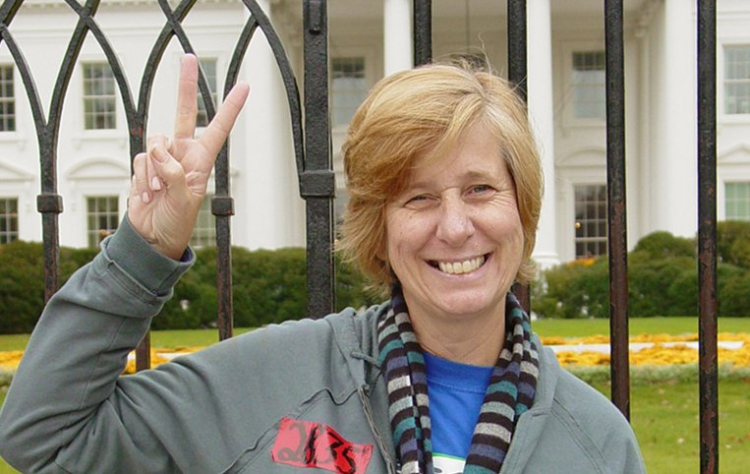
Cindy Sheehan’s activism post-2016 has evolved and diversified, reflecting her continued commitment to peace, anti-war activism, and social justice, while also engaging in broader political critiques. Here’s an update based on her activities and the general direction of her activism:
Current Activism Efforts:
Writing and Journalism:
Blogging: Cindy Sheehan maintains a blog titled “Cindy Sheehan’s Soapbox,” where she continues to voice her opinions on a wide array of topics including war, peace, politics, and social issues. This platform allows her to express her views directly to her followers without the filter of mainstream media.
Books and Articles: Sheehan occasionally writes articles for alternative media outlets and has authored several books. Her writings often focus on her experiences, the ongoing effects of U.S. foreign policy, and critiques of both the political left and right.
Independent Media and Podcasts:
Radio Shows: She has participated in or hosted radio shows and podcasts, focusing on discussions about peace, justice, and political critique, often inviting other activists and thinkers to discuss these issues.
Community and Grassroots Organizing:
Local Activism: Sheehan engages in local activism around her area of residence, focusing on issues like environmental justice, peace advocacy, and community support. Her approach has become more localized, working with smaller groups and coalitions.
Protests and Rallies: Although less visible in national media, she still participates in and sometimes organizes local protests and rallies, particularly in response to military actions or social injustices.
Political Commentary:
Social Media Critique: Sheehan uses platforms like X (formerly Twitter) and other social media to comment on current events, political developments, and to critique the political establishment. She often calls out what she sees as hypocrisy in both major parties.
Continued Anti-War Activism: Despite the shift in her public profile, Sheehan remains steadfast in her anti-war stance. She advocates against military interventions, supports veterans’ rights, and calls for peace negotiations in various conflicts.
International Solidarity: Occasionally, she comments on or supports international peace movements and might show solidarity with global anti-war activists.
Education and Speaking Engagements:
Lectures and Talks: Sheehan occasionally speaks at universities, peace conferences, or progressive events, sharing her experiences and insights on activism, the impact of war, and the need for systemic change in American politics.
Intersectional Activism: She aligns herself with various social justice movements, recognizing the intersectionality of issues like racial justice, economic inequality, and environmental concerns with peace advocacy.
Political Party Involvement:
Peace and Freedom Party: Although her run for Vice President in 2012 was with the Peace and Freedom Party, her involvement with such third parties continues to be a platform for her activism, advocating for alternatives outside the two-party system.
Challenges and Adaptations:
Media Presence: Her shift from mainstream to alternative media reflects a broader trend where many activists pivot towards grassroots and independent platforms for more direct engagement with their audience.
Focus on Broader Systemic Issues: Sheehan’s activism has broadened to critique not just war but the entire political and economic system, focusing on how militarism, capitalism, and political corruption intersect.
Personal Activism: After years of intense public activism, Sheehan has also hinted at focusing more on personal well-being and family, which might lead to a less public but still impactful role in activism.
Criticism of Establishment Politics: Her narrative often includes a strong critique of what she perceives as the duplicity of the political establishment, encouraging more independent and grassroots political action.
Cindy Sheehan’s activism continues to be driven by her personal losses and a deep-seated commitment to peace and justice, but her methods and focus have adapted to the changing political landscape, emphasizing education, writing, local engagement, and critical commentary on systemic issues.
